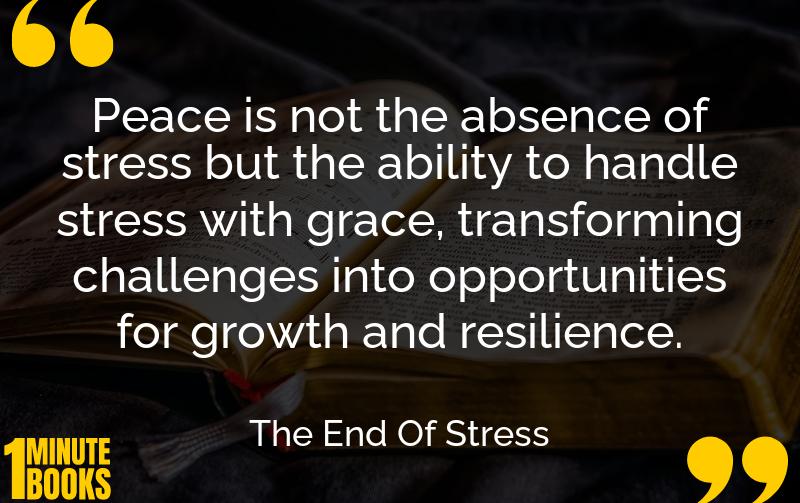
The End of Stress by Dr. Don Joseph Goewey explores the causes of psychological stress and offers a four-step method to rewire the brain, helping readers manage stress and improve their mental attitude for better emotional responses.
Main Lessons
- Fear and anxiety often stem from anticipated problems that never occur.
- Psychological stress can lead to significant health issues, including heart disease.
- The brain has two parts that handle stress: the higher brain (planning) and the lower brain (emotional responses).
- Emotional memory stores events and their emotional responses, impacting future reactions.
- Changing your mental attitude can alter how you perceive and respond to external circumstances.
- Awareness of stress triggers can help in managing stress effectively.
- Starting the day calmly can set a positive tone, minimizing stress throughout the day.
- Temporary separation from events can provide clarity and reduce stress.
- Finding appropriate responses to loss of control can prevent unnecessary stress.
- Identifying and challenging fear’s root cause reduces its power over you.
- Vacations or breaks from stressors can help reset habitual stress responses.
- Facing shyness and fear of criticism enhances personal growth.
- Periodic self-assessment aids in long-term stress management and personal development.
- Long-term stress effects are detrimental; addressing them proactively protects mental and physical health.








